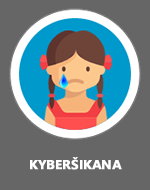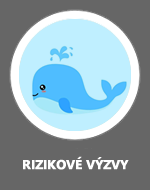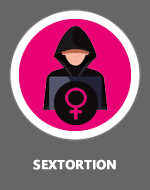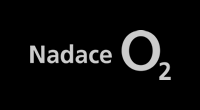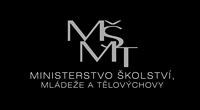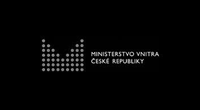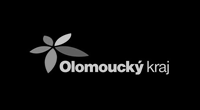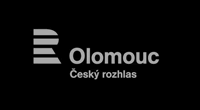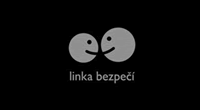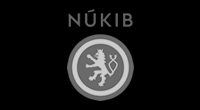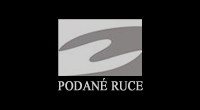Olomouc (July 15, 2014) – The largest survey to date on the risk behaviour of Czech teenagers on the Internet has been conducted by Palacký University in Olomouc. The survey was completed by 28,000 teenagers. Altogether, 40 percent of them would respond affirmatively to a request for meeting in person. The survey findings will be practically applied by Palacký University experts: they will employ them to further educate teens as well as adults. The survey research was conducted by the Centre for the prevention of risky virtual communication at Palacký University in collaboration with their partners – the companies Seznam.cz and Google.
“Research on the risk behaviour of Czech pubescents and adolescents has been conducted since 2010. We monitor risky communication phenomena associated with the use of Internet services. We particularly focus on cyberbullying, making risky acquaintances in the environment of Internet services, sharing intimate materials on the Internet, revealing personal data, risky behaviour on social networks, and other phenomena,” said Kamil Kopecký from the Faculty of Education at Palacký University, the coordinator of the E-Safety project (E-Bezpečí).
Revealing too much to a stranger
The survey findings have confirmed that minors are largely willing to reveal their personal information to people they know only from online communications. Altogether, 63 percent (10% more than in 2013) of the teenage respondents would send their first and family names to a stranger, while 43 percent would share their e-mail address (a 12% increase). “Sharing one’s own intimate materials with other internet users (so-called sexting) has been done by an increasing number of minors. Almost 8 percent share their own photographs and videos on the internet, while 12 percent send them to other users, such as their boyfriends/girlfriends and friends,” said Martin Kožíšek, Internet Safety Manager for Seznam.cz.
Even more shocking is the number of teenagers who would personally meet a person that they only know from the Internet. Forty percent would agree to go on a date with an Internet friend – 4 percent more than in 2013. They would most frequently (55%) tell their friends or siblings about their “blind date”, whereas only 42 percent would inform their parents.
Cyberbullying
The number of Internet attacks (cyberbullying) has increased since last year – teenagers most often face violations of their personal accounts (35%; 12% of which admit that it had become a problem) and verbal attacks (34%), including extortion. “The number of cases of minors being blackmailed with the use of sexually motivated materials is permanently on the increase. The data from last year confirm that almost 8 percent of minors have been blackmailed via the internet. It most often involves photographs and videos sent to the perpetrators by the children themselves either voluntarily, or under coercion,” said Kopecký.
This year, the research has been investigating for the first time whether teenagers have access to a web camera and how they use it. Visual recording devices are available to 69 percent of teens. “Almost 3 percent of Czech minors confirm that they have been humiliated, blackmailed or threatened with a webcam recording of them,” emphasised Kopecký.
Do you need help?
Teenagers are quick to learn how to use modern technologies, and similarly, when in need of help they are able to find it on the Internet. “After launching the counselling programme within the ‘Meet safely!’ project (Seznam se bezpečně!) in 2009, we received just a few inquiries or requests for help. At present, we receive 40 messages per month, and this number rises every year about 25 percent,” added Kožíšek. This is why preventive programmes are so crucial. “Thanks to our long-term work with teens, parents, and others, we have managed to address this most vulnerable group. Teenagers master the bases of safe behaviour on the Internet and learn to recognise the risk situations they are exposed to there,” explained Kopecký.
The research findings bear out the need to increase Internet literacy. This is also the goal of the Google Safety Centre (Centrum pro bezpečnost Google), providing information on how to behave safely on the Internet and what can be done for ourselves and our families’ protection. “Just as we learn safety rules while driving on the roads or communicating with strangers, it is also vital to learn how to use the Internet in a safe and responsible way. That is why we have been paying attention to Internet literacy in the long term. Web Rangers is a project designed to create proper habits concerning Internet use. It is based on the experience that it’s more effective if teenagers share among themselves what they have learned. The initiative not only teaches teenagers how to use the Internet safely, but as Web Rangers they spread their knowledge among their peers. It shows them that the Internet and its tools are important even in education and that they can benefit from this in their ordinary life,” added Michal Zachar, Marketing Manager at the Czech division of Google.
The findings of the “Survey of risk behaviour of Czech children on the Internet 2014” will be applied to white papers by the Ministry of Education and the Ministry of the Interior of the Czech Republic. Also the two major internet companies, who took part in the project this year for the first time, Seznam.cz and Google, will use the survey findings for improvement of their services.
Author of the report: Lenka Skácelíková, PU Communications Department
|
More information: |
|
Mgr. Kamil Kopecký, Ph.D. |
|
Centre for the prevention of risky virtual communication, Faculty of Education, Palacký University |
e-mail: Tato e-mailová adresa je chráněna před spamboty. Pro její zobrazení musíte mít povolen Javascript. |
|
tel.: +420777146808, +420585635601 |


